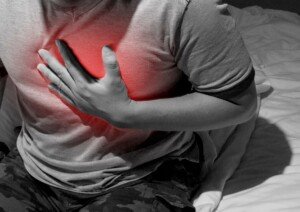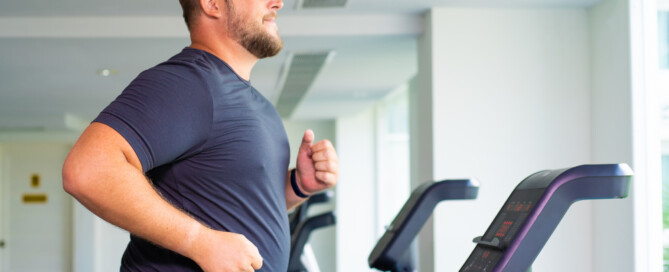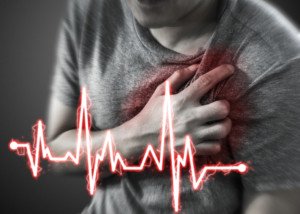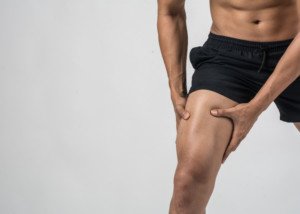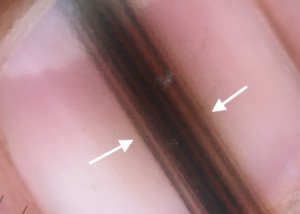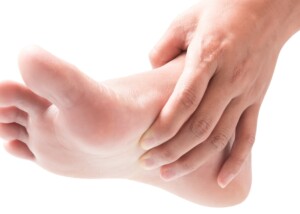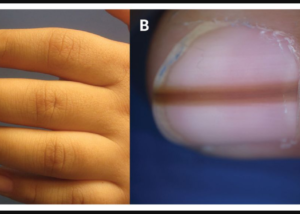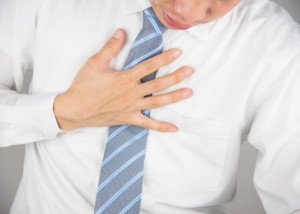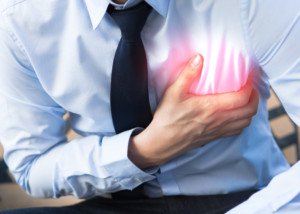Are You More Likely to Survive Heart Attack if You Exercise?

Yes, those who exercise can still get a heart attack, but at least this means they’re less likely to die from a heart attack when compared to sedentary people. (more…)
Should Dogs Get an Annual MRI to Screen for a Brain Tumor ?

YES, your healthy dog should get annual MRI’s for brain tumor screening.
An MRI isn’t as expensive as you think, especially if it can catch a brain tumor early.
Cancer (which includes brain tumors) is the leading killer of dogs, and my parents’ German shepherd’s MRI showed a brain tumor. The veterinary neurologist told us, “I see this all the time.”
Sores Near End of Cat’s Tail: Causes and Solutions by Vet

There is more than one possible cause for persistent sores at the end of a cat’s tail.
Certainly this is not something that a cat owner should ignore – not any more than you’d ignore it if your child had continuous sores on their behind. (more…)
Back Squat Alternative for Long Femurs: Zercher Version

Femurs that are longer than one’s torso are a disadvantage to performing the back squat.
If your lower legs are disproportionately short for your upper legs, and especially if your femur length exceeds that of your torso, you’re stiffed when it comes to executing back squats without an uncomfortable forward lean, unless you adopt a very wide stance; enter the Zercher squat. (more…)
How to Do a Split Squat With a Barbell Across Your Back

Have you been thinking about doing a split squat with a barbell across your back?
You’ve probably seen people doing the split squat with dumbbells. This exercise is as much a favorite among women as it is men.
You can also do this with a barbell across your back — either a free barbell or with a tracked barbell device.
Get familiar with this movement by first using dumbbells.

Shutterstock/Artsplav
Having the back leg elevated is fine. Once you’re comfortable with the dumbbell version, you’re ready for a barbell.
However, start with a light barbell, even if you’re using a track machine (“Smith” machine). A light barbell will expedite your ability to refine your form early on.
As to how far apart your feet should be, in terms of one behind you and one ahead of you, this boils down to personal preference.
However, there IS a such thing as the back foot being too close to the forefoot, which would put more stress on the knee joint.
A good rule of thumb is that the back foot should be far enough behind you so that your leg is actually extended behind you (hip extension), yet at the same time, you can feel the quads, butt and hamstrings working.
Another point of consideration is your back position. It should be upright, with an arch in the lower part.
Your back should not be rounded or hunched. This is easier to prevent with a tracked barbell.
If you can’t help but lean forward when using a free barbell, then see what happens when you use a lighter barbell.
You may have to adjust foot position to find a way to prevent leaning forward. Keep in mind that the more your back leg is extended behind you, the more difficult it may be to keep an upright back.
Taking yoga classes will help immensely with loosening up a stiff lower back.
Sets and Reps
Aim for eight to 12 repetitions each side for three to five sets to get in a good lower body workout.
 Lorra Garrick is a former personal trainer certified through the American Council on Exercise. At Bally Total Fitness she trained women and men of all ages for fat loss, muscle building, fitness and improved health.
Lorra Garrick is a former personal trainer certified through the American Council on Exercise. At Bally Total Fitness she trained women and men of all ages for fat loss, muscle building, fitness and improved health.
.
Top image: Freepik.com/pressfoto
Why Do 5’10” Women Hate Their Height More than 6’2” Women ?

It’s strange but true:
Women who hate their height the most aren’t the tallest women out there.
They tend to be around 5-10. And actually, 5-10 is no longer all that tall for a woman. (more…)
Should You Stop Babies from Putting Fingers in Their Mouth?

What would happen if every time you caught your baby with their fingers in their mouth, you removed their fingers with a firm “No”?
You may be thinking, “Why not just let them have their fun? What’s the harm if they’re sucking on their fingers? Babies like this; let them be!”
The “Eeeuuu!” Factor
From a non-medical standpoint, there’s the issue of unsightliness. When babies suck or munch on their fingers, invariably this causes saliva to drool out.
When the baby removes her fingers, they glisten with a fresh coat of saliva. This has that “Eeeuuu!” factor to it.
Of course, the solution is DON’T look if it makes you queasy. However, there’s a second issue: physical contact with the “grossed out” adult (or older child). They won’t want to hold this baby.
I’ll admit, I fell into that category when my niece was four. She frequently had her thumb in her mouth.
When it was out it looked raw and wet. Anyone who picked her up risked getting that wet yucky thumb on their skin. There’s always the adult out there who’ll be very cognizant of this.
Gateway to Nail Biting?
If babies, toddlers and preschoolers are permitted to suck on their fingers or have their fingers in their mouth in any shape, way or form, might this pave the way to nail biting?
There are no studies on this, but it’s fair wonder if all very young nail biters started out with sucking on their fingertips or whole fingers.
It’s easy to imagine that sucking on a digit can then escalate to nibbling at the fingertip and then eventually biting at the nail.
Unbreakable Thumb Sucking
My niece was still sucking her thumb at age seven! My sister-in-law said she had tried everything to stop this habit.
It finally stopped after the girl fell off some monkey bars and broke her arm.
Her baby sister frequently has three fingers in her mouth. I see this all the time with other babies and toddlers in public.
Meanwhile, there are parents who find this unsightly and will not permit it in their own children. Who’s right?
Should Parents Pull the Fingers Out of Their Baby’s Sucking Mouth?
“Babies and toddlers should not be asked to remove their fingers from their mouth,” says Dr. Lisa Lewis, MD, a board certified pediatrician in Fort Worth, Texas, and author of “Feed the Baby Hummus, Pediatrician-Backed Secrets from Cultures Around the World.”
“Babies and toddlers like to console themselves and also reduce symptoms of teething by putting their fingers in their mouths.
“Yes, they can pick up illnesses more easily this way. The hands should be kept washed regularly, but not excessively.
“A good alternative to telling children, ‘Take your hands out of your mouth,’ would be to offer a safe toy they can chew on or a pacifier.
“But asking them (repeatedly!) to take their hands out of their mouth will cause them to think about it more, and likely increase the behavior.
“At a young age, the baby and toddler brain is not ready to correct a self-nurturing behavior that is involuntarily present.
“When children enter preschool, they often naturally stop the behavior. Their impulse to explore with their mouth is reduced, and they naturally note that their peers are not putting their hands in their mouth.”
Finger Sucking vs. Thumb Sucking and Nail Biting
The New York State Dental Journal has a report titled, “When children put their fingers in their mouths. Should parents and dentists care?”
“We have heard mothers tell their children not to stick their fingers in their mouths because they will get sick,” states the report’s abstract.
“Medical and dental professionals know this is true. Oral habits like thumb sucking and nail biting can damage the structure of the mouth and can lead to the spread of infectious diseases.”
If your baby, toddler or preschooler seems to suck on their fingers more often than is necessary, and especially if it’s accompanied by a lot of drool that turns your stomach, it’s best to consult with your pediatrician and the child’s dentist before you take any actions to extinguish the habit.
Dr. Lewis has been a practicing pediatrician for 25+ years. She completed her pediatrics residency at Texas A&M University Health Science Center, Scott and White Memorial Hospital where she served as chief resident.
 Lorra Garrick has been covering medical, fitness and cybersecurity topics for many years, having written thousands of articles for print magazines and websites, including as a ghostwriter. She’s also a former ACE-certified personal trainer.
Lorra Garrick has been covering medical, fitness and cybersecurity topics for many years, having written thousands of articles for print magazines and websites, including as a ghostwriter. She’s also a former ACE-certified personal trainer.
.
Top image: Shutterstock/Samara.com
Source: ncbi.nlm.nih.gov/pubmed/9542394
Can You Have Acid Reflux Without Any Symptoms?

If acid reflux is going on in your body, would you necessarily have any symptoms or can this problem go on without causing even the slightest heartburn, burping or other little disturbance? (more…)
100 Big Thick Ponytails Plus Tips on Ponytail Care
100 images of big badass ponytails — poofy, curly, wavy, silky — ALL KINDS of ponytails + tips on mechanical prevention of hair loss.
Many women desire a big thick ponytail and are envious of those who have this naturally. A badass ponytail comes in different varieties, from poofy and bushy to thick and wavy to curly, coiled and kinky. Check out the 100+ glorious big ponytails below. And along with these are great tips on how to minimize hair loss.
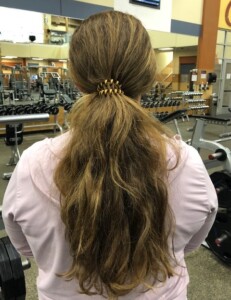






This glorious ponytail belongs to a man.
TIP: When washing your hair, use your fingertips rather than letting your nails dig into your scalp. When nails make contact with the scalp in a rubbing manner, this can rip strands out of their roots or weaken their hold.


Yes — that’s a man, with a magnificent ponytail.




TIP: “A mistake some make is to tie the tail too tightly,” says Fae Norris of the Rock Paper Salon, who has 17+ years of professional hairstyling experience.
“This can lead to what’s called traction alopecia,” continues Norris. “A fancy name for ‘Why is my hair snapping off in bunches?’ It usually happens with the fine hairs at the hairline or the crown where the tail sits.
“So try and find that middle ground where the tie stays in place but doesn’t bind too tightly.”
Norris adds, “I’ve found that Invisibobble hair ties work best for no other reason than they don’t leave the tell-tale ‘bend’ in hair when they’re removed. Just shake and go.”


TIP: How do you remove a fastener without taking some hair with it? To minimize this kind of hair fall, gently lift up one of the fastener loops with a finger, making sure not to pull up strands of hair with it.
Once you’re clear of any strands, insert a toenail scissors right under the loop, then snip the loop. You can then gently disengage the band from the hair without uprooting any strands. Always have on hand a supply of fasteners.



Caucasian women don’t always have “white” hair. If a white woman was born with “frizzy” hair, then that’s the right hair for her!
Not every woman was meant to wear her hair down. Maybe you were meant to rock giant ponytails! Embrace this destiny.



TIP: If an area of your scalp begins itching, do not scratch it with the typical rubbing action of a fingernail. This could dislodge strands from their follicles.
Instead, press the fingernail into the spot that’s itching and hold for a few seconds, then release. This should stop the itch. In fact, pressing the pad of your fingertip into the spot may actually do the trick as well.

TIP: “Prepping your hair before you pull it up will pay off,” says Norris. “It’s important to have your hair mostly, if not fully, dry before pulling it up.
“Because it’s more elastic. wet hair always need to be handled carefully to avoid snapping. A dry oil will give shine along with protection, and following that with a dry shampoo provides texture and a good ‘grip’ without slip. Finish with an aerosol hairspray to smooth down any flyaways.”


TIP: Never remove bobby pins with a yanking motion, as this can tear strands of hair out of their roots.
Rather, gently and patiently disconnect the pin (or any type of clip for that matter) from your hair to help prevent hair loss.
Sometimes the pin or clip will entrap a strand or two. That may not sound like a lot, but over time this will add up in hair loss. Every bit of prevention helps.

TIP: Another way to avoid needless hair fall is to avoid brushing or combing your hair while it’s in a ponytail. The hair will tend to get snagged in the bristles or teeth.
If you find a knot in your ponytail, just let it go until your hair is down to remedy it. However, to gently touch up a ponytail, use a clean (never used) toothbrush and reserve this toothbrush strictly for your hair.


TIP: When doing pushups, make sure your hair is very clear of your fingers; no strands caught under them. Otherwise, as you push up, the trapped strands will pull out of their roots.
TIP: Always be gentle and slow-moving when putting your hair in a ponytail, even if you’re in a hurry. Slow movements mean less “hair fall.”
Before completing the double loop of the rubberband, make sure that there are no strands caught up in the second loop. Same thing if you’re going for a third loop (but as already mentioned, a tight band can stress the hair.)


TIP: If you wash your hair in the kitchen sink, never abruptly lift your head up.
That’s because there could be some strands partially in the drain; if you abruptly raise your head, this might pull the hairs from their roots. It may be only a few strands, but over time, those strands count.
Solution: slowly lift your head; if you feel any strands being tugged, you can then gently correct the problem.


TIP: When squeezing suds or water out of your hair after washing, never apply the squeeze close to the scalp, as this will stress follicles and probably uproot some strands.
Instead gently hold your hair at a point a few inches from your scalp, then with the other hand squeeze the hair below your first hand to eliminate traction and tension to the scalp.

TIP: An exercise that could potentially catch some hair and rip strands out of the follicles is the back squat (as opposed to the front squat below).
Be careful of how your ponytail is being scrunched or yanked against the barbell as you position yourself under the metal – or under the padding if you use that.
Velcro from the padding might come in contact with your ponytail and rip out strands once you exit from under the bar after your set.
Another tactic for minimizing hair loss while working out is to be conscientious of how hard you tighten your ponytail before a big lift. This is a good-luck practice of some women.
Just be mindful that aggressive tightening of your ponytail could snag a few strands and weaken the follicles or even rip them out.



Don’t ever think of a ponytail as a lazy way to manage hair. A ponytail is a style in and of itself, and its versatility is no secret: from gym workouts to elegant affairs to shopping — the ponytail always works!



Is your hair just crazy all over the place when it’s down? Are you sick and tired of trying to “do” something with your hair when it’s down? Do you envy women who “can” wear their hair down?
Newsflash: Maybe your hair was meant to rock a badass ponytail!

TIP: When removing a sweatband, do so slowly, as it may have entrapped some random strands. If you quickly pull off the band, the trapped strands will likely come out of their roots, albeit negligible for that particular moment.
But enough moments like this added up over time will mean a contributor to hair loss that no woman needs.




This does not look real. More than coincidentally, the two background photos show poofy ponytails, so I suspect this might be a hairpiece for a ponytail show. I even wonder if this is a mannequin; look at “her” right shoulder.







TIP: If you often get frustrated over managing your young daughter’s “wild” ringlets, maybe the problem is that you’ve been trying too hard to create a tame hair-down look. How about putting it in a ponytail? Let the ringlets naturally flow and bounce from the fastener!



AND MORE BIG PONYTAILS…

O M G !! Can you imagine the behemoth of a ponytail this magnificent hair would make?

This beast of a ponytail below belongs to a man.

Here’s another image…

















If you’re self-conscious about your plus-size body, a plus-size ponytail will detract from it.






 Lorra Garrick has been covering medical, fitness and cybersecurity topics for many years, having written thousands of articles for print magazines and websites, including as a ghostwriter. She’s also a former ACE-certified personal trainer.
Lorra Garrick has been covering medical, fitness and cybersecurity topics for many years, having written thousands of articles for print magazines and websites, including as a ghostwriter. She’s also a former ACE-certified personal trainer.
Different Kinds of GERD Chest Pain Described by Doctor
